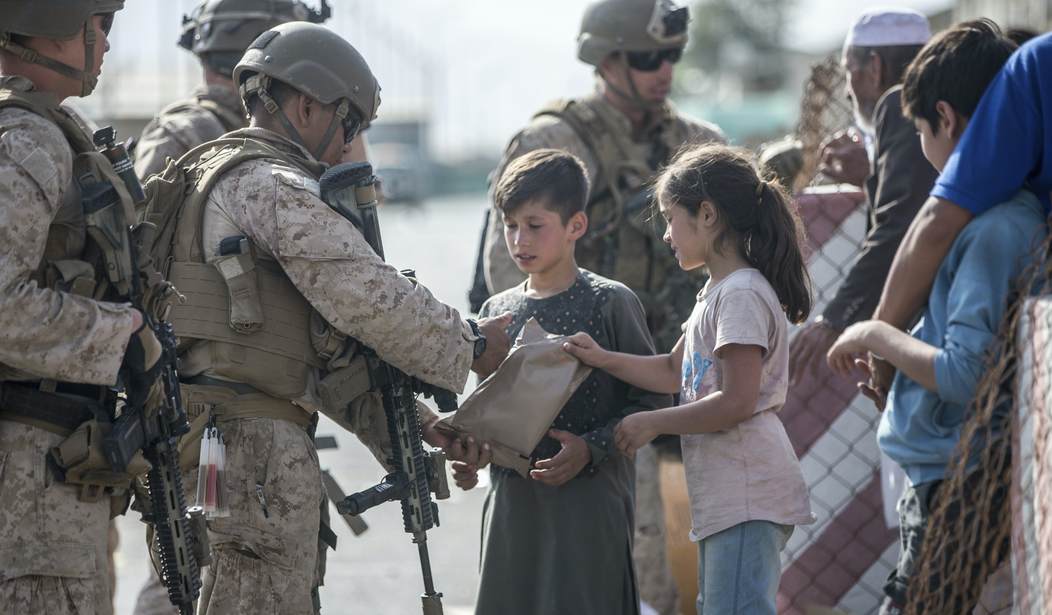The U.S. military’s chaotic withdrawal from Afghanistan in August 2021 was a moment of profound embarrassment and a source of deep demoralization for many veterans.
In the recent presidential debate between former President Donald Trump and President Joe Biden, Trump said the U.S. military’s disastrous withdrawal from Afghanistan in August of 2021 was “the most embarrassing moment in the history of our country.”
As a veteran of brutal combat in Afghanistan, I felt the same. The decision to withdraw not only tarnished the U.S.'s global image but also deeply impacted the morale of the finest fighting force in the world.
According to an August 2021 study by Pew Research, at the time of the evacuation, 54% of Americans said the decision to withdraw U.S. troops from Afghanistan was the right one. Around four-in-ten Americans (42%) said the decision was the wrong one.
In the same survey, 69% of U.S. adults agreed that the U.S. “mostly failed” in achieving its goals in Afghanistan.
I disagree. We didn’t mostly fail; we utterly failed our military in so many ways.
Thirteen service members were killed in that mockery of our military three years ago. And, as predicted, the radical, violent Taliban recaptured the capital of Kabul in just 10 days.
At a congressional hearing, Chairman of the Joint Chiefs of Staff, General Mark Milley, called the withdrawal from Afghanistan a “strategic failure.” In this heated hearing, Milley also said U.S. military presence in Afghanistan helped protect Americans from future terror attacks.
Recommended
Then-Congressman Mike Rogers of Michigan, the top Republican on the House Armed Services Committee at the time, called the withdrawal an "unmitigated disaster."
"It will go down in history as one of the greatest failures of American leadership," Rogers said.
I deployed to Iraq and Afghanistan multiple times and spent many difficult days and long nights in that cursed country. But my most harrowing experience by far came when my unit came under siege in Afghanistan’s Korengal Valley–known as "The Valley of Death" because so many Americans lost their lives there. We were actually there to shut down a U.S. base, but when the enemy emerged from the valley in wave after wave, we fought for our lives for the next 72 hours straight.
Our nation sent our best women and men to free Afghanistan from the grip of tyranny. Many of them did not come home. All of those lives lost and blood spilt now seems in vain.
In that pivotal presidential debate–which led to Biden’s own disastrous withdrawal from seeking a second term–the President falsely claimed our military is the “finest in the world,” and “no one thinks we’re weak.” Biden couldn’t be more wrong about the strength, and reports say otherwise.
Let’s look at the evidence.
Despite claims of a strong military, evidence points to significant issues. In 2024, the U.S. military is expected to have a record low in recruitment, with the smallest active-duty force since 1940. In 2023, only the Marine Corps and the Space Force met their recruiting goals despite increasing bonuses and relaxing standards.
Reports indicate that the U.S. struggles to retain service members for various reasons. Many top leaders are merely waiting out their enlistments and contracts. Too many in our officer corps and senior enlisted ranks are just trying to finish their careers to secure benefits.
Mountains of evidence show that our military is weak, at least weaker than that during the last administration.
In January, the Heritage Foundation released a report and said, “the Active Component of the U.S. military is two-thirds the size it should be, operates equipment that is older than it should be, and is burdened by readiness levels that are more problematic than they should be.”
We have record levels of suicide among service members across the board. Twenty-two veterans a day end their lives. Recently, the Pentagon reported that U.S. soldiers are almost 9 times more likely to die by suicide than by enemy fire.
Many non-profit organizations, like SOF Missions, have served active duty and veterans left behind by leadership. Teams of dedicated medical and mental health experts–empowered by donors–step in and provide free medical care to veterans due to the overburdened and mismanaged Veterans Affairs Department, working to prevent suicide and striving to provide tools which build resilience and help troops reintegrate into civilian life.
Our military heroes need hope now more than ever. Since the collapse of Afghanistan, the active duty and veteran community have been in disarray. Today, more than ever, they need leadership that will rebuild our military, preserve the future of our American veterans and be ready to respond to international actors threatening a new war in the Middle East.
Dr. Damon Friedman, a decorated veteran of combat in Iraq and Afghanistan, retired from the Air Force as a lieutenant colonel in special operations. He is the recipient of the Spirit of Hope Award from the Secretary of Defense, chairman of the Veterans Service Alliance and founder of SOF Missions, which works with veterans with PTSD.

























Join the conversation as a VIP Member